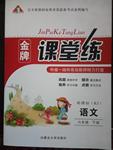题目内容
Ask someone what they have done to help the environment recently and they will almost certainly mention recycling. Recycling in the home is very important of course. However, being forced to recycle often means we already have more material than we need. We are dealing with the results of that over-consumption in the greenest way possible, but it would be far better if we did not need to bring so much material home in the first place.
The total amount of packaging increased by 12% between 1999 and 2005. It now makes up a third of a typical household’s waste in the UK. In many supermarkets nowadays food items are packaged twice with plastic and cardboard.
Too much packaging is doing serious damage to the environment. The UK, for example, is running out of it for carrying this unnecessary waste. If such packaging is burnt, it gives off greenhouse gases which go on to cause the greenhouse effect. Recycling helps, but the process itself uses energy. The solution is not to produce such items in the first place. Food waste is a serious problem, too. Too many supermarkets encourage customers to buy more than they need. However, a few of them are coming round to the idea that this cannot continue, encouraging customers to reuse their plastic bags, for example.
But this is not just about supermarkets. It is about all of us. We have learned to associate packaging with quality. We have learned to think that something unpackaged is of poor quality. This is especially true of food. But it also applies to a wide range of consumer products, which often have far more packaging than necessary.
There are signs of hope. As more of us recycle, we are beginning to realise just how much unnecessary material are collecting. We need to face the wastefulness of our consumer culture, but we have a mountain to climb.
1.What does the underlined phrase “over-consumption” refer to?
A. Using too much packaging. B. Recycling too many wastes.
C. Making more products than necessary. D. Having more material than is needed.
2.The author uses figures in Paragraph 2 to show _______.
A. the tendency of cutting household waste B. the fact of packaging overuse
C. the rapid growth of super markets D. the increase of packaging recycling
3.According to the text, recycling ______.
A. helps control the greenhouse effect B. means burning packaging for energy
C. is the solution to gas shortage D. leads to a waste of land
4.What can be inferred from Paragraph 4?
A. Unpackaged products are of bad quality. B. Supermarkets care more about packaging.
C. It is improper to judge quality by packaging. D. Other products are better packaged than food.
5.What can we learn from the last paragraph?
A. Fighting wastefulness is difficult. B. Needless material is mostly recycled.
C. People like collecting recyclable waste. D. The author is proud of their consumer culture.
1.D
2.B
3.A
4.C
5.A
【解析】
试题分析:回收对环保有好处。太多的包装对环境有着严重的损害。如果不过度包装就会减少很多的垃圾,如果能意识到这一点,让人们正确认识消费的意义,还有很多工作要做。
1.词义猜测题。根据该词所在的句子的意思:我们以可能的最环保的方式处理过度消费的结果,但如果我们首先不需要带那么多的材料回家应该会更好。可知over-consumption的意思应为“过度消费”,所以D项意义正确。
2.推理判断题。根据作者在文中使用的数字可知,作者使用数字的目的是为了让读者清楚地理解过度包装的现实问题,所以B项正确。
3.细节理解题。If such packaging is burnt, it gives off greenhouse gases which go on to cause the greenhouse effect. Recycling helps, but the process itself uses energy. 的意思:如果这种包装被烧掉,它就会释放继续导致温室效应的温室气体。回收是有帮助,但这一过程本身也消耗能源。由此可知A项正确。
4.推理判断题。第四段讲述了人们对于包装不好的商品的固有认识,即:人们普遍认为包装不好的东西质量肯定差,所以C项应为正确答案。
5.推理判断题。文章讲述了人们对于过度包装的危害的认识及人们应有的积极态度,最后一段提到我们还有希望,但是最后一句we have a mountain to climb. 提示我们事情不会一蹴而就,所以A项正确。
考点:环保类短文阅读。

 金牌课堂练系列答案
金牌课堂练系列答案 三新快车金牌周周练系列答案
三新快车金牌周周练系列答案